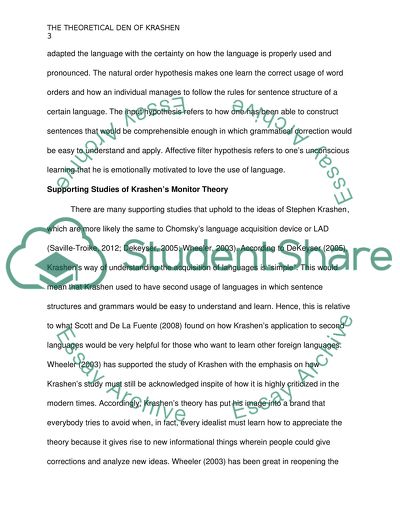Cite this document
(“Literature review about: Stephen Krashens monitor models Essay”, n.d.)
Retrieved de https://studentshare.org/english/1607464-literature-review-about-stephen-krashens-monitor-models
Retrieved de https://studentshare.org/english/1607464-literature-review-about-stephen-krashens-monitor-models
(Literature Review About: Stephen Krashens Monitor Models Essay)
https://studentshare.org/english/1607464-literature-review-about-stephen-krashens-monitor-models.
https://studentshare.org/english/1607464-literature-review-about-stephen-krashens-monitor-models.
“Literature Review About: Stephen Krashens Monitor Models Essay”, n.d. https://studentshare.org/english/1607464-literature-review-about-stephen-krashens-monitor-models.


